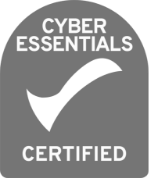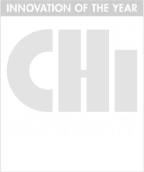Real-World Evidence (RWE) has drawn a lot of attention recently as an invaluable source of information for clinical practise, health policy, and decision-making related to healthcare. To gain insights into treatment patterns, results, safety, and the cost-effectiveness of interventions in standard clinical practise, RWE studies use real-world data from a variety of sources, including electronic health records (EHRs), claims data, registry data, self-reporting by patients, and other health-related data. To ensure the responsible and ethical use of data while protecting patient privacy, security, and confidentiality, there are significant ethical issues that must be addressed as the usage of RWE expands.
The potential ethical issues surrounding the use of RWE in healthcare research and practise will be discussed in this article, along with the significance of striking a balance between privacy, security, and medical improvements.
Respect for the confidentiality and privacy of patients
Respect for patient confidentiality and privacy is one of the main ethical factors in Real World Evidence research. Large and diverse datasets containing sensitive health information, such as patient demographics, medical histories, diagnoses, treatments, and outcomes, are frequently used in RWE investigations. To maintain trust between patients, researchers, and healthcare providers as well as to adhere to legal and regulatory requirements, such as UK and EU GDPR laws, it is essential to protect patient privacy and confidentiality.
Real World Evidence studies should follow strict data de-identification and anonymising methods to protect patient privacy and confidentiality. Therefore, ensuring agencies employed to carry out such research are informed and experienced in handling such data is a must.
Clear communication and informed consent
Informed consent and transparency are fundamental ethical criteria in Real World Evidence research. Patients should be made aware of how their information will be used in RWE studies, any possible dangers or benefits, as well as their rights and alternatives for opting out or having their information withdrawn. In order to respect patients' autonomy and ability for decision-making, informed consent should be obtained in a straightforward and understandable manner. However, due to the large-scale and retrospective nature of the data, as well as the potential biases introduced by self-selection and non-response, gaining informed consent in RWE studies can be difficult.
Researchers should ensure transparency in RWE studies. This can entail distributing information sheets, consent forms, and summaries written in simple language that describe the study's purpose, the kinds of data that will be used, and any associated risks and advantages. Patients should be able to readily opt out of or withdraw their data from RWE studies, and researchers should respect their choices.
Security and Privacy of Data
In Real World Evidence research, data security and confidentiality are crucial ethical issues. Large and intricate datasets utilised in RWE studies may be subject to security lapses, data theft, or unauthorised access, resulting in privacy violations and possible patient injury. Maintaining patient trust, adhering to regulatory obligations, and preventing data exploitation or abuse all depend on protecting the integrity, confidentiality, and security of patient data.
To protect RWE data, researchers should have strong data security mechanisms in place. This should involve creating access controls, adopting secure data storage and transfer methods, encrypting data, and routinely monitoring and auditing data for security flaws. Additionally, researchers should make sure that contracts and agreements for data sharing with data suppliers or collaborators have provisions protecting the security and confidentiality of the data as well as outlining its permissible uses. Researchers should also be aware of and abide by any applicable laws, rules, and regulations pertaining to data protection.
Conclusion
Real-world evidence (RWE) has become an important source of information for guiding decision-making in healthcare and evidence-based medicine. To maintain appropriate and ethical research practises, it is crucial to address the ethical issues related to the use of RWE. Important ethical considerations for RWE research include maintaining patient privacy and confidentiality, guaranteeing openness and informed consent, and putting strong data security mechanisms in place.
Ultimately, an ethical and responsible approach to Real World Evidence can support the use of evidence-based medicine in real world settings, boost patient trust, and increase the legitimacy of research findings.










